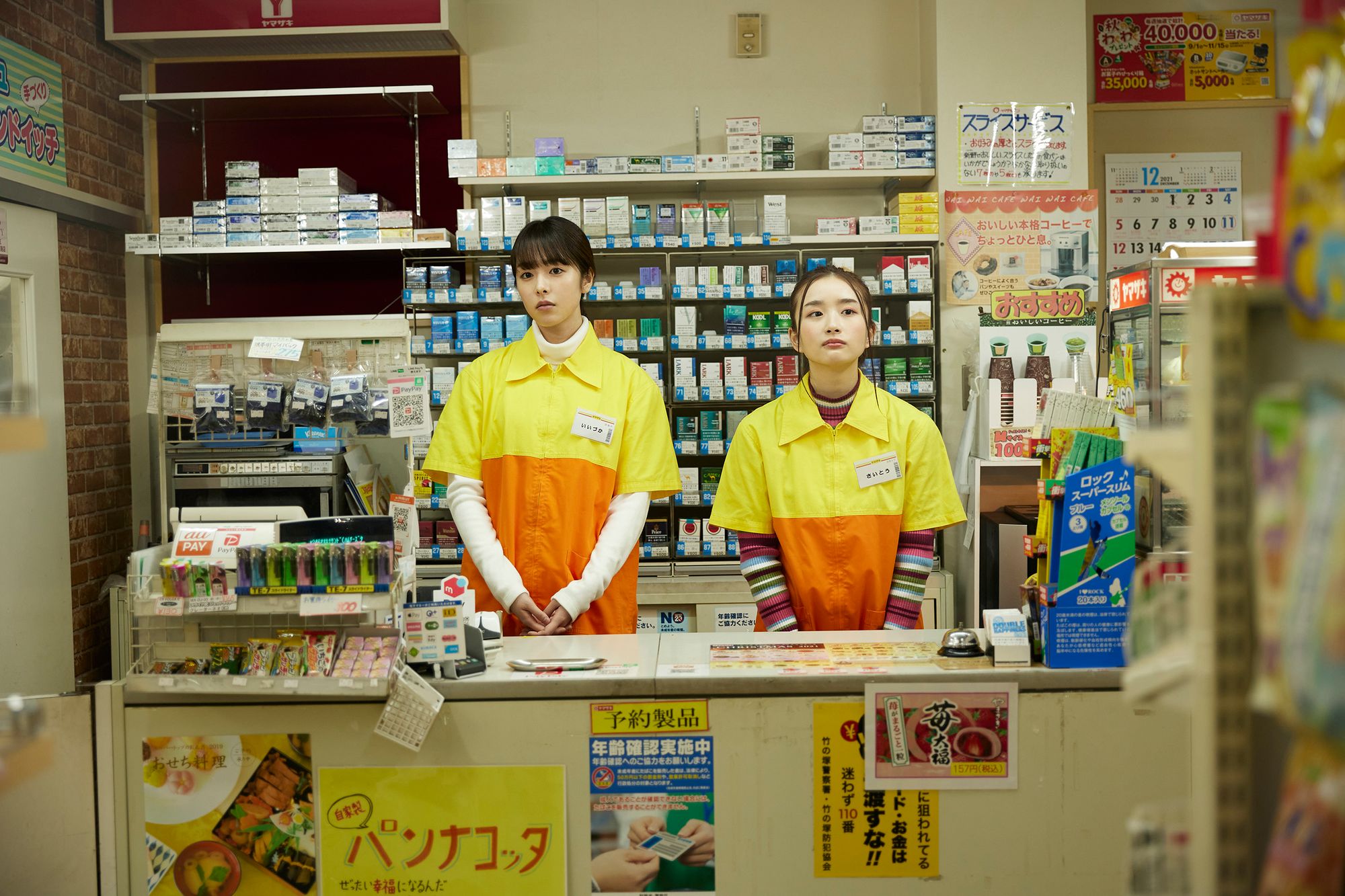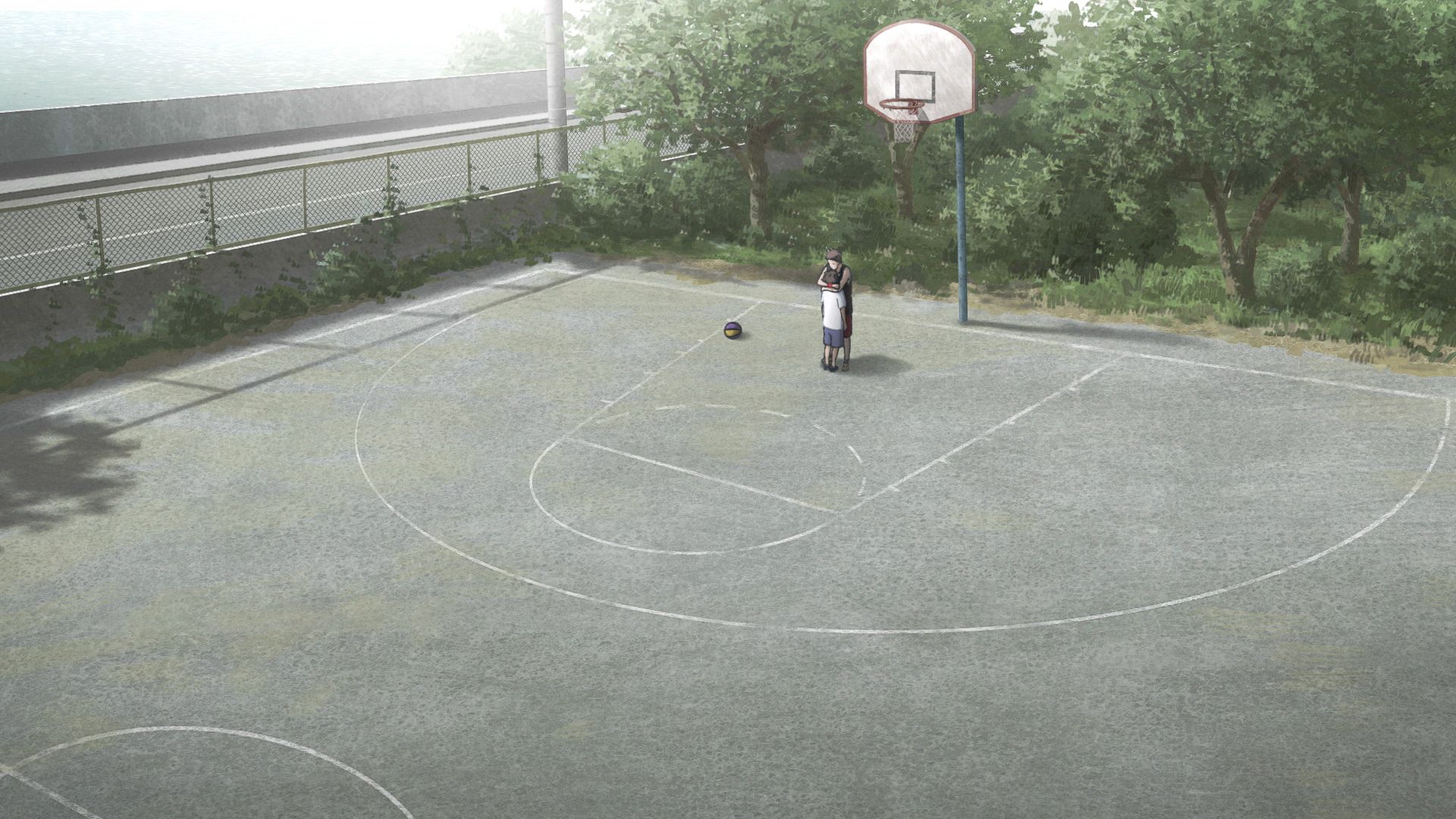Slices of Life - Japan Cuts 2023

Every year these midsummer weeks of late July and early August see the best showcases for East Asian film in North America arrive in New York City and, by the miracle of online screeners, in my inbox. While the New York Asian Film Festival (follow the link to see my quartet of reviews from this year’s festival) takes a broad survey of the region, highlighting films from Hong Kong, China, Japan, Korea, the Philippines, and more, Japan Cuts takes a more specific approach, digging deep into the film culture of what has always been one of the most productive and fascinating filmmaking nations in the world. I’ve been covering the festival at one site or another every year since 2017 (though the festival appears to have taken 2022 off), and it’s always a reliable source for under-the-radar discoveries in addition to movies by more well-known filmmakers. Tremble All You Want, Love and Goodbye and Hawaii, Night is Short Walk on Girl, Hanagatami, Jeux de plage, The Kamagasaki Cauldron War, and Bullet Ballet are all films I’ve discovered and loved at Japan Cuts over the years, and this year’s festival looks just as promising.
This first dispatch from the festival highlights what has become one of my favorite modes of Japanese filmmaking, the slice of life movie. It’s not really a genre, more an approach or a style, like film noir. Slice of life is a kind of realism, though it often includes elements of fantasy and science fiction. You see it as much in anime and television as cinema, and includes both comedy and drama. What makes it a distinct mode, as I figure it, is its relaxed focus on everyday life, the small setbacks and victories that befall and surprise ordinary people, imbuing the everyday with depth and meaning that can be as specific or general as one requires to get through the day. Slice of life films have something in common with the minimalist styles of the New Taiwan Cinema of the 80s or the hypnotic rhythms of Apichatpong Weerasethakul, but they owe just as much to the domestic melodramas of Ozu and Naruse and the eclectic spirit of American independent film.

Ishibashi Yuho’s When Morning Comes, I Feel Empty is the most traditionally slice of life of the first three films I saw at Japan Cuts this year. It’s about a young woman played by Erika Karata (Asako I & II) who, we find, has quit her corporate job and begun working at a convenience store. She lives in a small apartment and eats dinner while listening to a podcast on her laptop. She bicycles to work across a bridge every day, learns a little bit about other people as she gets to know her new co-workers, and has a chance encounter with an old classmate that turns into a budding friendship. The conflicts in the film, such as they are, revolve around a broken curtain rod and her relationship with her parents, whom she has not told about her career change. Both turn out to be fixable. Flowing gently through the young woman’s days, with their minor frustrations and small joys, When Morning Comes is just as naturalistic and politically charged as any social realist film from Rosellini to the Dardennes, but completely lacking in stridency. Like recent films like Little Forest (in either its two part Japanese or single film Korean versions) and Microhabitat, it’s about a young woman rejecting the expectations of modern capitalism and finding a kind of peace outside the system of achievement. Like Remembering Every Night (by Japan Cuts alum Kiohara Yui), it’s a deceptively simple movie, a film that feels likes a nice nap on a warm afternoon, but a nap taken in defiance, not contentment.

Mondays, from director Takebayashi Ryo, presents a similar rejection of corporate life, albeit one filtered through a satirical time loop comedy. Again the slice of life approach focuses on the small details of its characters’ world, from the makeup of their little office, to the mundanity of their failed dreams. Workers at an advertising agency slowly, one by one, discover they’re in a time loop, Groundhog Day-style, repeating the same week over and over again. The analogy to corporate life is obvious (how could any worker tell their days are repeating when every day in an office is the same?) but not overplayed. Instead much of the film’s comedy comes from the various schemes the workers have to employ to raise the consciousness of their co-workers. Flow charts and power point presentations abound, only to be erased by the repeating structure, forcing rewrites and revisions until they finally get it right. Eventually, after a few false starts, they figure out what they need to do to escape the loop (it involves drawing a manga for their boss (played by the delightful Makita Sports)), but not everyone is able to fully commit to the project, because even though they’ve done it so many times that it should have lost all meaning, they still want to do a good job on the presentation that’s due at the end of the week. While Mondays doesn’t quite have the manic ingenuity of Yamaguchi Junta’s brilliant Beyond the Infinite Two Minutes, descending into prolonged sappiness during its final reel, it shows the versatility of the slice of life mode, building a charming sci-fi comedy out of a handful of actors and one or two mundane locations.

The First Slam Dunk is, first and foremost, a sports anime, and that is where it is most exceptional. Adopting the structure of a film like Sam Raimi’s For the Love of the Game, where flashbacks are nested within a single baseball game (which in turn owes a nod to Daniel Okrent’s classic book 9 Innings, which uses a single game to explore a whole array of stories about baseball), Slam Dunk takes place in the span of a single basketball game, the national high school championship, and uses a series of flashbacks to explore the lives and personalities of many of the game’s players. The focus is on point guard Miyagi Ryota, leading his underdog school against the dominant defending champions while also working through the accidental death of his older brother several years earlier. But each of the other players on his team, as well as a few of the opponents, get their own stories as well. These are the film’s slice of life elements, small coming of age dramas involving standing up to bullies or learning a new skill or taking on a leadership role. Some are more interesting than others, but all the players get their chance to shine in the game, which is close in the first half but becomes a rout in the second, when the Goliath team builds a huge lead. This is where most of the film takes place, as each of Miyagi’s teammates have their stories developed and concurrently play their role in the team’s painstaking comeback. As a sports film, it’s tremendous, the animation terrifically detailed with shockingly realistic physics for a sport as complicated to model as basketball. Every bounce of the ball, leap and crunch of the players, squeak of the sneakers feels as real and weighty as it could possibly be for an animated film. The pacing can feel a bit off at times, especially near the film’s end as director Inoue Takehiko whisks us away from the increasingly dramatic final seconds of the game for yet another flashback, but that only makes the game itself more exciting, building tension in anticipation. Some of the greatest recent slice of life films have been animes, TV series like K-On!! and Sound! Euphonium and its spin-off film Liz and the Blue Bird in particular have a lot in common with The First Slam Dunk, being built around high schoolers juggling the small dramas of growing up alongside a commitment to bettering oneself at an artistic activity (basketball in this case, music in the others). Slam Dunk lacks Liz and the Blue Bird’s poetry, the way director Yamada Naoko extracts seemingly infinite varieties of emotion and meaning out of the smallest gestures (a look, a hesitation, the swish of a ponytail). But as a work of movie sports prose, it’s very good.
